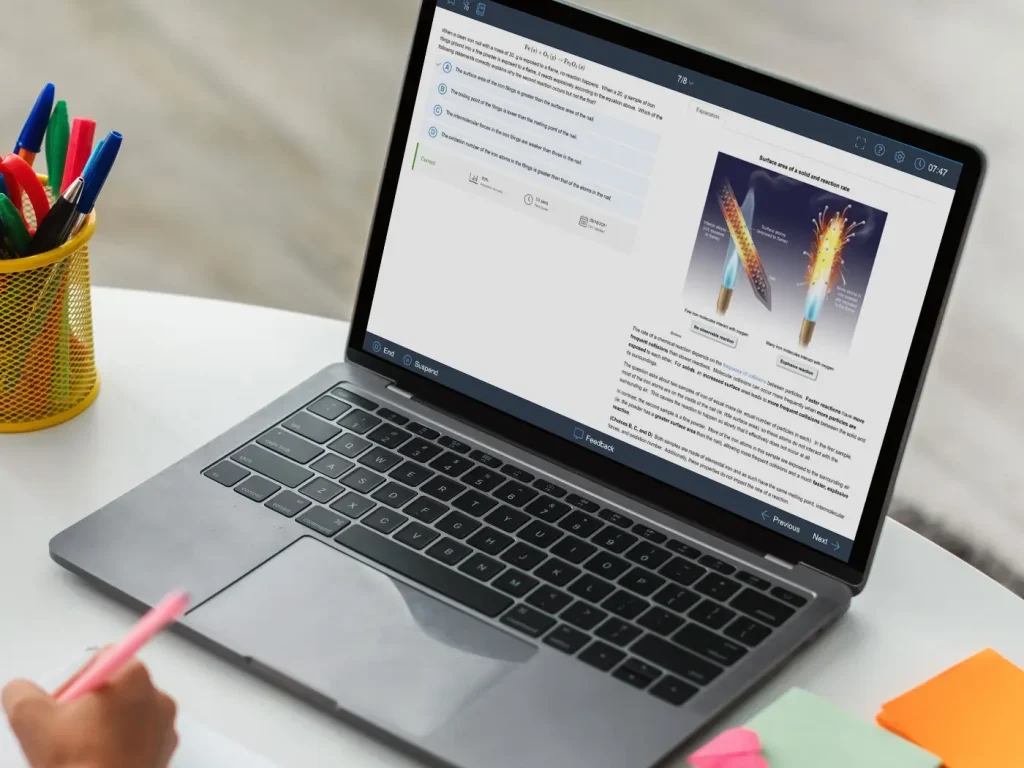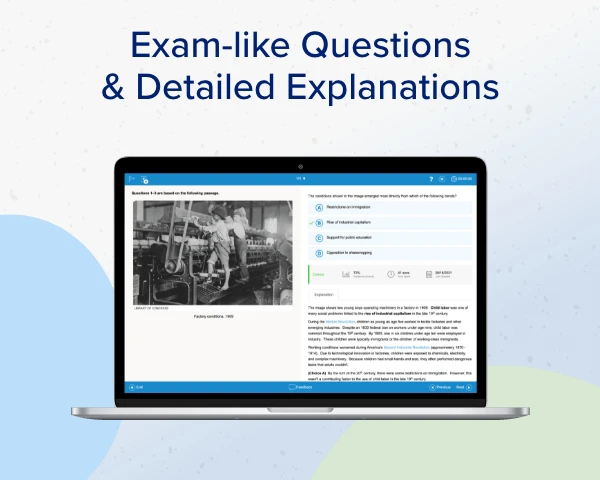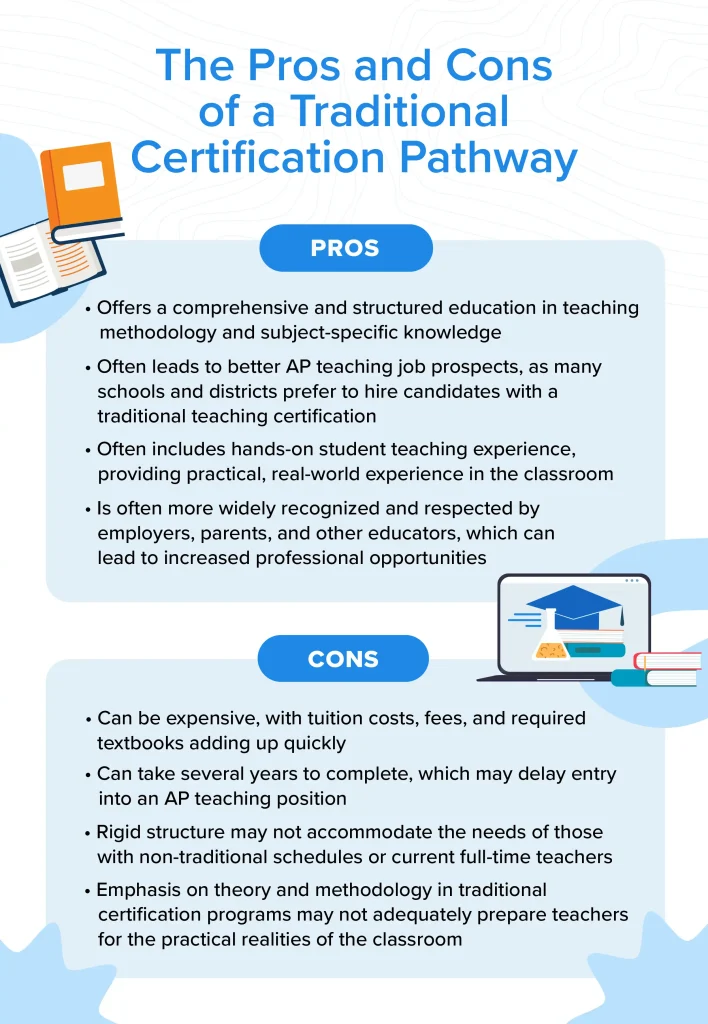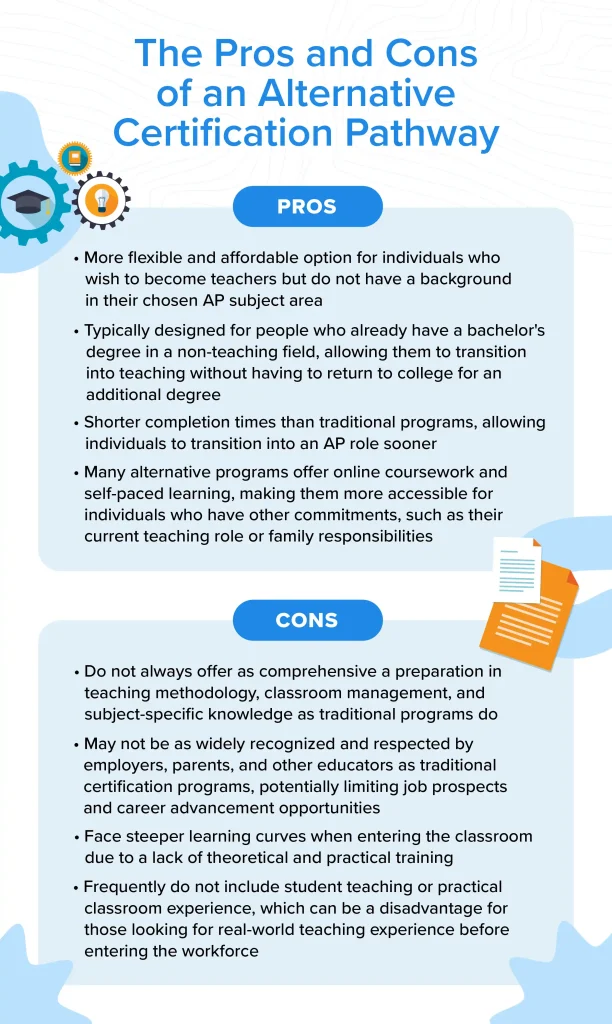AP® Teacher Certification: How to Get Started
At some point or another, most kids are asked the all-important question, "What do you want to be when you grow up?” Many respond with a certain level of predictability—a firefighter, a pop star, a nuclear physicist... And it isn't a stretch to say that many of the children who also love to “play school” and give their stuffed animals spelling tests are the ones who grow up wanting to become teachers.
"Grownups” who want to teach, however, must consider more than just their desire to do so; they also have to decide what kind of teacher they want to be. And if that decision lands on teaching an AP® course, they need to understand how to become an AP teacher and the certification process required to make that happen.
Eligibility Recommendations and AP Teacher Certification
Most people understand that to become an AP teacher, having both a strong desire to teach and an equally strong background in your prospective subject area is necessary. Even though there are no set AP teacher certification requirements, the College Board® recommends that AP teachers meet certain qualifications, such as passing a College Board audit to authorize their AP course.
Degree in content area or related field
The College Board recommends that people who want to teach AP courses have at least a bachelor's degree in the subject they want to teach or a related field. This ensures that AP teachers know enough about their subjects to provide their students with quality instruction.
At least three years of teaching experience
The College Board also recommends that instructors who want to teach an AP course have been teaching for at least three years. This gives educators time to learn the pedagogical skills and classroom management techniques they need to teach rigorous AP-level material.
Professional development/AP Summer Institutes
It is also suggested that teachers who want to teach AP courses take part in related professional development training sessions or workshops, such as those offered at an APSI (Advanced Placement Summer Institute). Professional development gives teachers the training, tools, and support they need to teach the AP curriculum well and help their students get ready for the AP exam. Teachers who attend these PD sessions can also work with other teachers and experts in the field, sharing best practices and finding new ways to meet their students' needs in the AP classroom.

AP Course Audit
The AP Course Audit is an examination of the instructor's course syllabus to make sure it satisfies the standards set by the College Board for an AP course. By completing the AP Course Audit, teachers can ensure that their course is recognized by colleges and universities as equivalent to college-level courses and that their students are eligible to receive college credit or advanced placement based on their exam scores. The moment a teacher finds out they have been offered an AP course, they will need to begin the step-by-step AP Course Audit process to get their course authorized by the College Board:
- Fill out and submit the subject-specific AP Course Audit form online, and get approval from a school administrator.
- Submit documentation to the College Board that shows your understanding of the AP course scope. Teachers must decide whether to adopt an approved course plan or syllabus, or create an original one.
- After submitting an approved course plan or syllabus, teachers typically receive course authorization within two weeks (although original syllabus submissions may take substantially longer). Once a course is authorized, instructors gain access to AP Classroom and their course is added to the official AP Course Ledger.
How Teachers Can Earn Additional Certifications
If an educator is missing the proper certifications to teach high school students in their desired subject area, they will need to add them. Once a teacher has their initial certificate, it's pretty easy to get more certifications, although the process can vary from state to state. Overall, however, the general steps are as follows:
- Meet the certification requirements: A high school algebra teacher who wants to teach AP Calculus might not need additional certifications, because most states typically require a mathematics degree (or a degree in a related field) and a certification in high school math to teach both subjects. But if an elementary school math teacher or a high school social studies teacher wants to teach AP Calculus, they would need to get an additional certification in high school math.
- Obtain additional coursework or training: In some states, teachers may need to complete additional coursework or training to meet the specific requirements for the additional certification. The College Board offers professional development workshops and resources for teachers who want to teach AP courses, which can also prepare a teacher for their desired AP subject.
- Pass the required tests: The teacher would need to pass their state’s required exam(s) to become certified to teach their new subject area and/or age group.
Required certifications by state
To earn additional teaching certifications, you must go through a set of requirements that vary from state to state. Here is a table with links to each state's requirements as well as information about how to take additional certification exams.
Relocating to a Different State and Additional Certification Coursework
When a teacher who is already certified moves to another state, they may have to complete additional requirements to get certified in the new state. In some cases, the teacher may be able to get certified through an agreement between the two states for reciprocal or alternative certification. This could mean showing that they meet the requirements for certification in the new state, such as by sending transcripts, test scores, and proof that they have taught before. The new state may also require the teacher to take additional coursework or pass specific exams.
In other cases, the teacher may need to complete a full certification program in the new state. This may be necessary if the new state's certification requirements are significantly different from those in the teacher's previous state or if the teacher's previous state did not meet the new state's certification requirements. If this is the case, an experienced teacher may need to choose between a traditional or alternative certification pathway to teach in their new state.
Traditional certification pathway
A traditional path to teacher certification is a formal education program that is usually offered by a college or university. It prepares educators for state certification by giving them coursework, supervised teaching experience, and tests of their knowledge and skills. Teachers who are transitioning into a completely different subject area may choose a traditional pathway in order to get the additional training they need to do so.
Alternative/Emergency Certification Pathway
An alternative teaching certification program lets people with a bachelor's degree or higher teach in a classroom while they earn their certificate. It also allows experienced teachers who are moving across state lines to meet their new state’s certification requirements without having to go back to school to do so.
Teacher Certification Programs in the United States
If your new state does require a full certification program to earn an additional teaching certificate, here are some great programs that work with experienced teachers in the United States:
- National Board for Professional Teaching Standards (NBPTS): a program that offers advanced certification for experienced teachers who meet rigorous standards for accomplished teaching.
- American Board for Certification of Teacher Excellence (ABCTE): an alternative certification program that allows individuals to earn a teaching certification without completing a traditional teacher preparation program.
- Teach-Now: an online teacher preparation program that offers a pathway to certification for individuals with a bachelor's degree in a non-education field.
- Teach for America: a non-profit organization that places recent college graduates in teaching positions in low-income communities. Although this program is well-known for working with new graduates, they also accept applications from experienced teachers.
AP Teacher Certification Renewal Requirements
Depending on the type of certification a teacher has, different states have different requirements for renewing teacher certification. Most of the time, teachers must complete a certain number of professional development hours or continuing education credits to keep their teaching certificates. You can earn these credits or hours by going to workshops, conferences, graduate classes, or in other ways that have been approved by the school district or administrator. Teachers may also have to pass a renewal exam or meet other performance standards to show that they are still good at what they do. Teachers usually have to send an application to their state's education department and show proof that they've done the required continuing education or professional development activities. Not all states have this kind of rigorous renewal process, either. Some states simply require teachers to pay a fee for certification renewal when their certificates are set to expire.
A Certified Rewarding Career
Becoming an AP teacher requires more than just the desire to teach. To teach an AP course, you must meet certain requirements. You might not specifically need an AP teacher certification, but you do need a subject area-related degree and the right state certifications. This might seem like a daunting process, but the joy of making a difference in the academic lives of so many students is well worth it.
Learn more about how we strive to support AP educators who strive to make a difference in the lives of their students with our Learning Tools for AP Courses.




